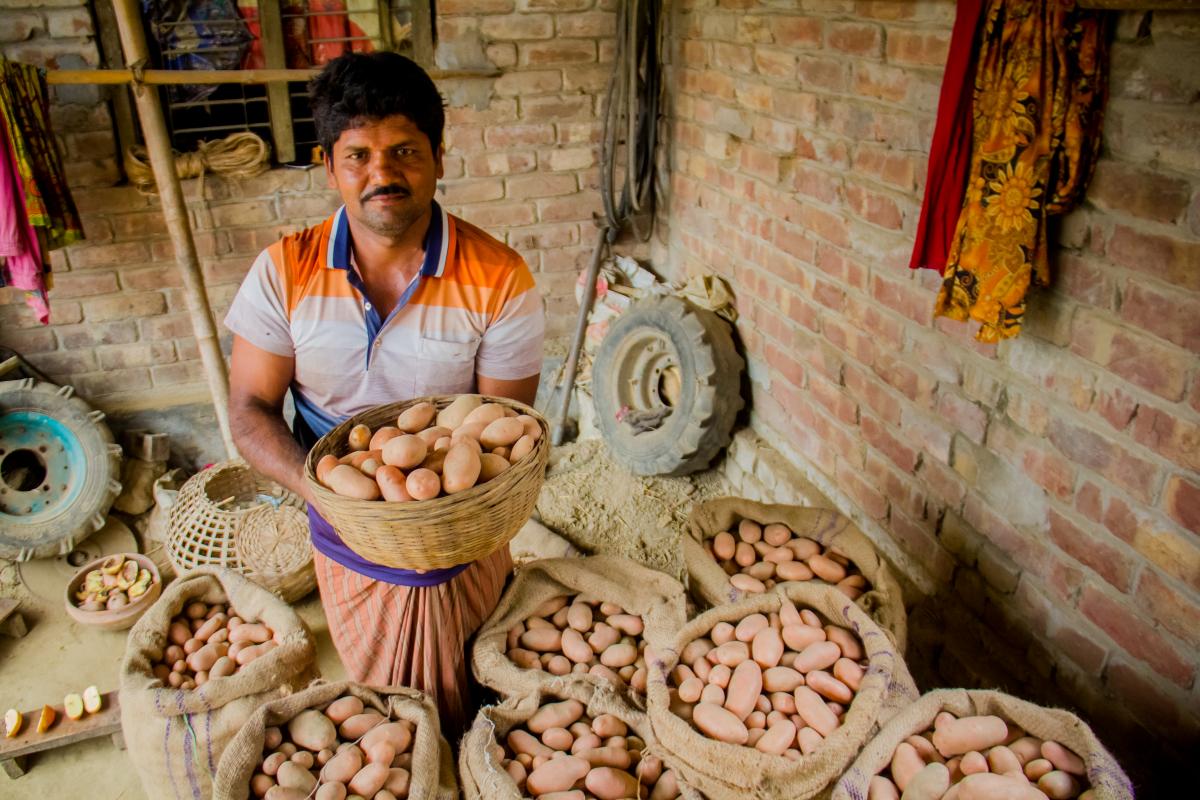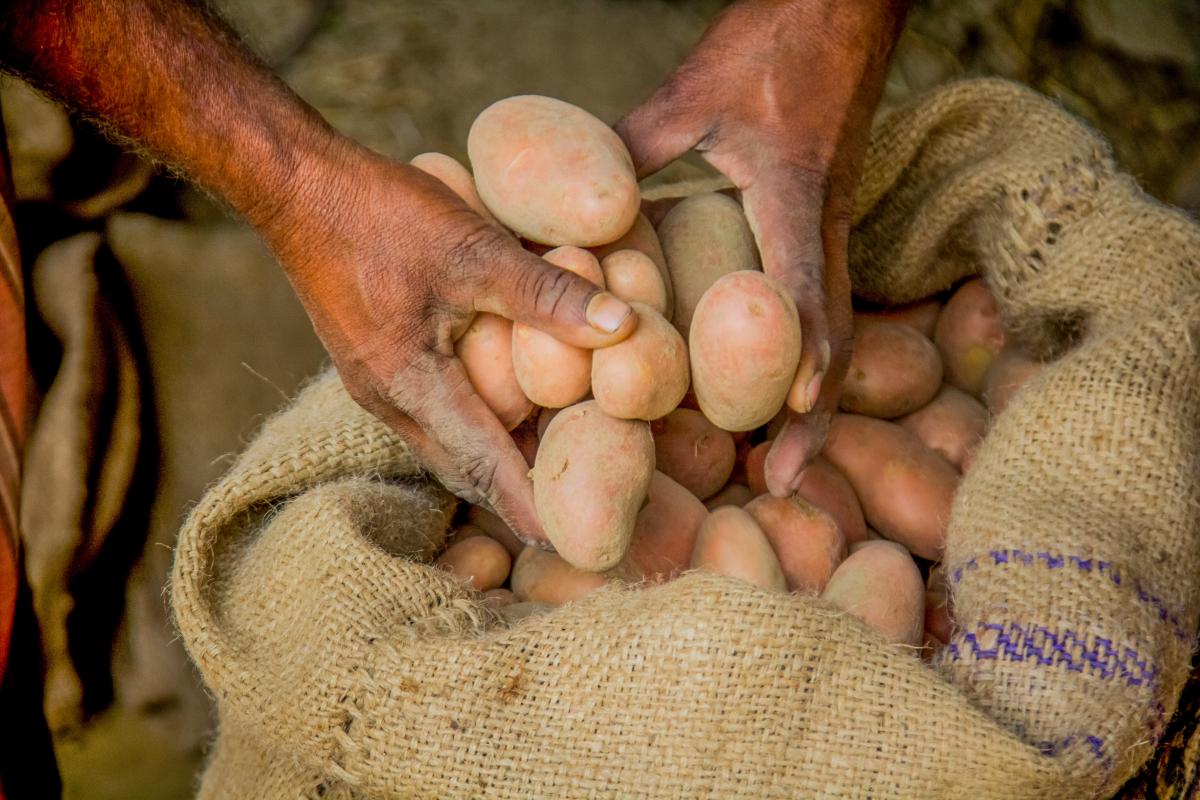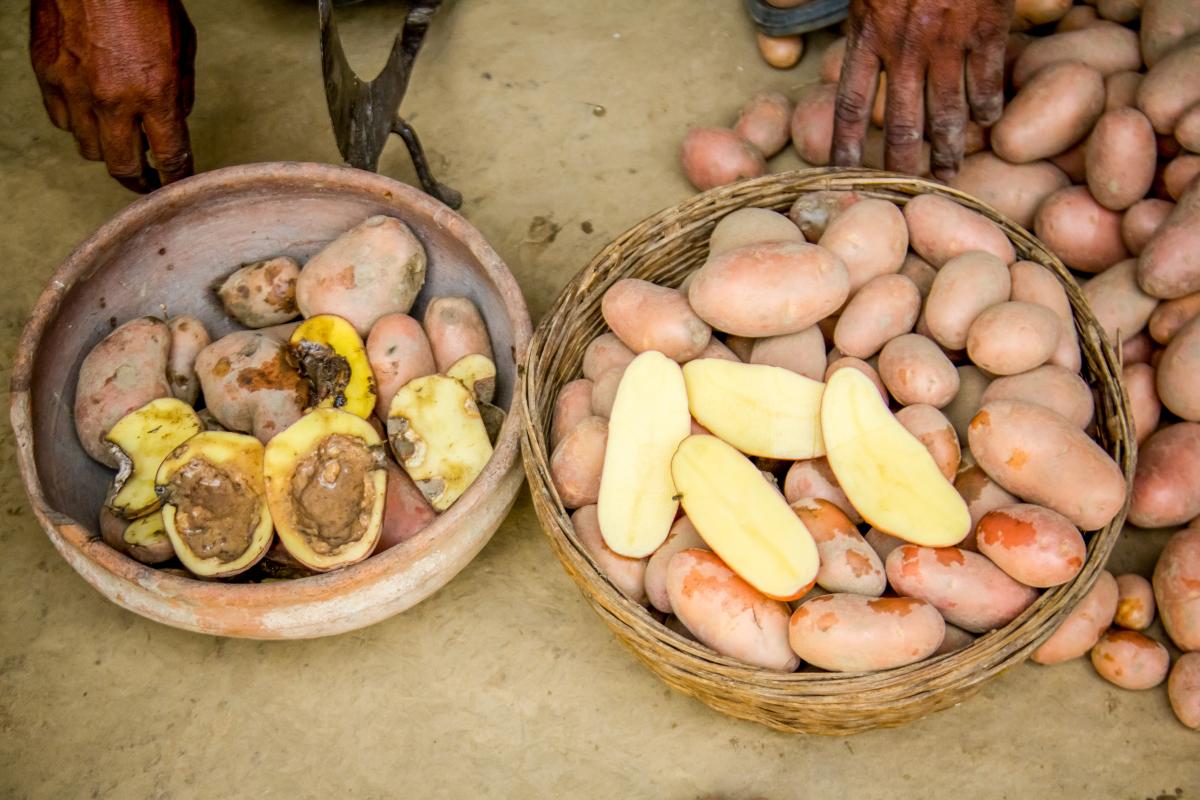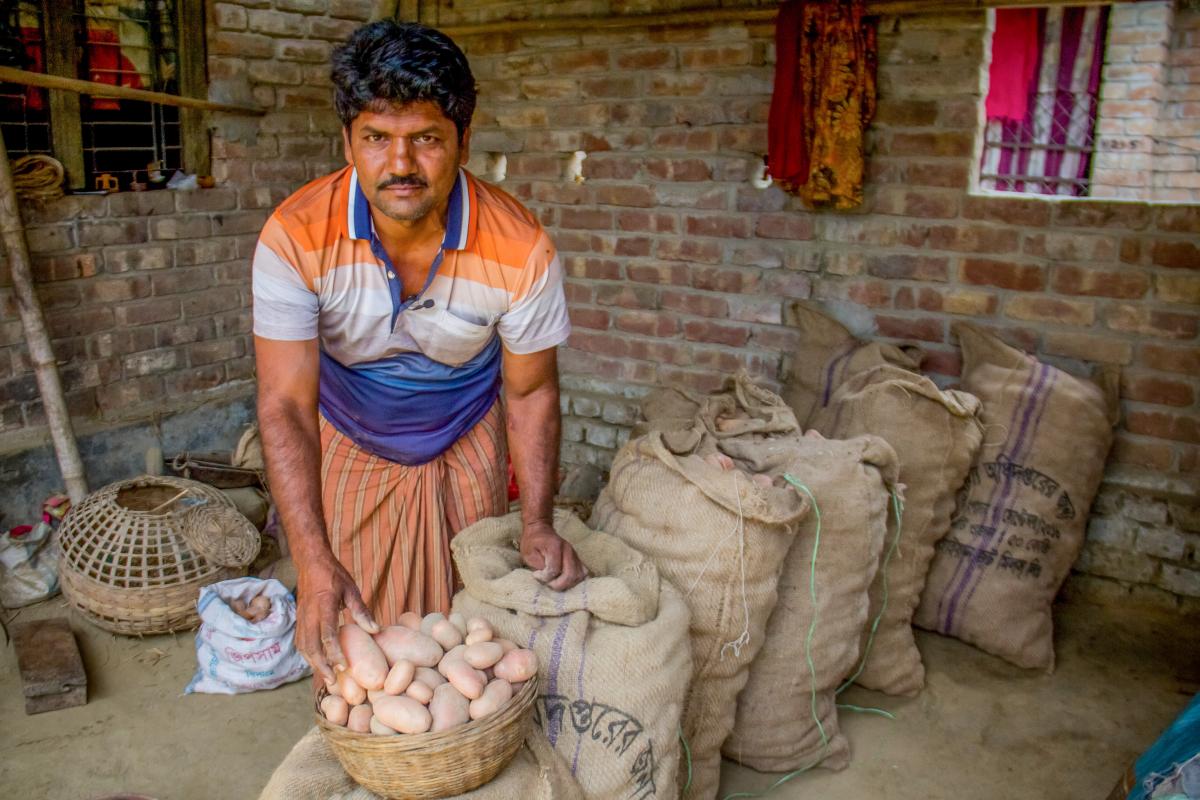Bangladesh is the world s seventh-largest producer of potatoes. Most of the crop is grown by small-holder farmers.

Akhter Hossain, a 46-year-old married father of three in the Chuadanga District, is one of them. He estimates that about 40 percent of the farmers in his area are engaged in potato cultivation, along with growing other cash crops.
He has 5 bigha (1.67 acre) of arable land, where he grows rice, corn and potato. About half of his holdings 2.5 bigha (0.835 acre) are devoted to potato production.

Akhter Hossain has been raising potatoes for 16 years, most recently as a contract grower for a private company, Modern Agro, which provides him with seeds and inputs needed for cultivation.

Last year, he harvested about 120 munds (4,800 kilograms) of Cardinal potatoes, and he planted the same variety again this year. But he faces many challenges, including the high cost of inputs, a scarcity of cold storage facilities, and crop damage by insect pests and disease particularly late blight disease (LBD).

To help small-holder farmers like Akhter Hossain, the Feed the Future Biotechnology Potato Partnership is using the tools of biotechnology to develop a genetically engineered potato resistant to late blight disease. By growing a disease-resistant variety, farmers will be able to reduce their use of fungicides and improve their yields, which means more money in their pockets at harvest time.

Agriculture minister Matia Chowdhury recently reaffirmed the government s support for genetically engineered (GMO) crop technologies to ensure sufficient food for the people of Bangladesh.
As New Age Bangladesh reported:
Addressing a Bangladesh Food Safety Authority meeting in Dhaka, the minister also said cultivating GM crops was the solution to producing more without relying much on the use of pesticides.
Referring to her previous decision on introducing hybrid crop technology in the county, Matia said, Many people opposed my decision when I allowed the hybrid crop technology, but it is the hybrid technology that ensures enough food for our people right now.
In 2014, Bangladesh approved the cultivation of genetically engineered Bt brinjal, which can resist the destructive fruit and shoot borer pest. The production of Bt brinjal has helped farmers dramatically decrease their use of pesticides, and it also fetches a better price at the market due to its high quality.
